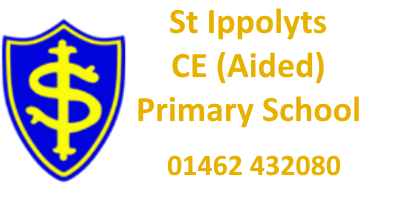St Ippolyts School believes that home learning is part of the partnership between our school and families in our continuing endeavour to promote our children’s learning.
AIM
To support and enhance children’s learning in the classroom by providing appropriate activities to be undertaken at home.
OBJECTIVES
- To develop good work habits and self-discipline for the future
- To learn to use a range of online platforms
- To develop the skills and attitudes necessary for independent learning by providing opportunities for children to use their ‘Learning Powers’
- To help parents gain insight into their child’s schoolwork and promote partnership between home and school.
- To consolidate and reinforce learning done in school and assist in preparation for future class work.
- To provide a context for pupil/parent interaction.
- To prepare older children for secondary education
CONTEXT
We believe in the importance of play and free time in a child’s growth and development. We recognise that many children have out of school commitments to clubs and hobbies and our approach to homework is intended to fit with these.
We aim to provide parents with opportunities to find out more about helping their children at home. Open evenings and workshops take place at the school from time to time (eg: Class One Curriculum Information Evening, Maths Evening, Reading at home workshops)
Information booklets on topics such as Foundation Stage, Reading and Spelling Guidance and Maths calculations strategies are provided and available to download from the school website.
Curriculum Information sheets for parents outlining the topics for each class are sent home each term.
We always welcome parents’ questions and are more than willing to give advice on how parents can support their child’s learning at home.
ROLES AND RESPONSIBILITIES
We believe that home learning is a two-way process. Teachers are responsible for setting activities and reviewing work done, parents are responsible for overseeing its completion.
The Role of Teachers
When homework is set:
- It is always clearly related to current areas of study within the classroom.
- The task is made clear to children and matched to their abilities,
- It should be possible for the children to complete it largely independently
- Time scales for completion and submission are explicit.
- Feedback is given to the children
- Problems or difficulties encountered by children are dealt with swiftly.
- Regular completion of homework of a high standard is recognised and celebrated.
The Role of Parents
To be actively involved in the home learning activities of younger children.
The parent’s role is a supportive one. Whilst they are able to encourage and support pupils, and to praise them when they have completed work, they are not expected to teach the child. With younger children, they may need to take a more active role. It is the children’s responsibility to complete homework and the parents’ responsibility to oversee that homework is completed and returned.
Parents are asked to:
- Find an appropriate time for their child to do home learning tasks
- Provide a suitable place for homework to be done, eg a table/desk
- Support their child’s concentration (e.g. little noise and/or visual distractions)
- Ensure their child has the necessary equipment available at home.
If parents have any problems or questions about homework, they should, in the first instance, contact the child’s class teacher.
The Role of Pupils
- To make full use of all the opportunities they are presented with
- To tackle home tasks promptly and with a positive attitude
- To take pride in presentation and content
- To take responsibility for submitting the completed task on the agreed day.
ONLINE PLATFORMS
Home Learning is facilitated primarily through Google Classroom alongside Bug Club, Times Tables Rockstars and for some children, Nessy. Y6 also use SAM Learning. In the autumn term, teachers will remind children and parents of their log-in details and will deliver refresher sessions on how to access and submit the learning.
INCLUSION
Children with additional learning needs will receive adapted, personalised tasks as needed.
Homework Overview
| Reception | Year 1 | Year 2 | Year 3 |
|---|---|---|---|
| Daily reading Bug Club Phonics 10 mins twice a week | Daily reading Bug Club Phonics 10 mins twice a week Spellings – out on Tuesday, tested Monday From the spring term one short task per week either English or Maths, around 10 mins | Daily reading Bug Club phonics and reading Spellings – out on Tuesday, tested Monday From the autumn term, one short task per week either English or Maths. 15 mins Times Tables Rockstars | Daily reading Bug Club Spellings – out on Tuesday, tested Monday From the autumn term, one task per week either English or Maths. 20 mins Times Tables Rockstars |
| Year 4 | Year 5 | Year 6 | |
| Daily reading Bug Club Spellings – out on Tuesday, tested Monday From the autumn term, one task per week either English or Maths. 25 mins Times Tables Rockstars | Daily reading Bug Club Spellings – out on Tuesday, tested Monday From the autumn term, two tasks per week, one English and one Maths. 20 mins per task Times Tables Rockstars | Daily reading Bug Club Spellings – out on Tuesday, tested Monday From the autumn term, two tasks per week, one English and one Maths. 30 mins per task Times Tables Rockstars SAM learning | All homework tasks will be uploaded onto Google Classroom on a Tuesday and will be due in the following Monday. Children may submit completed tasks at any time over the week before the deadline. |
On occasions, home learning provision may vary according to the time of year and any other relevant circumstances. For example, children may be set the task of learning their words or a song for an upcoming class assembly and Year 6 may be set specific SATs preparation tasks.




